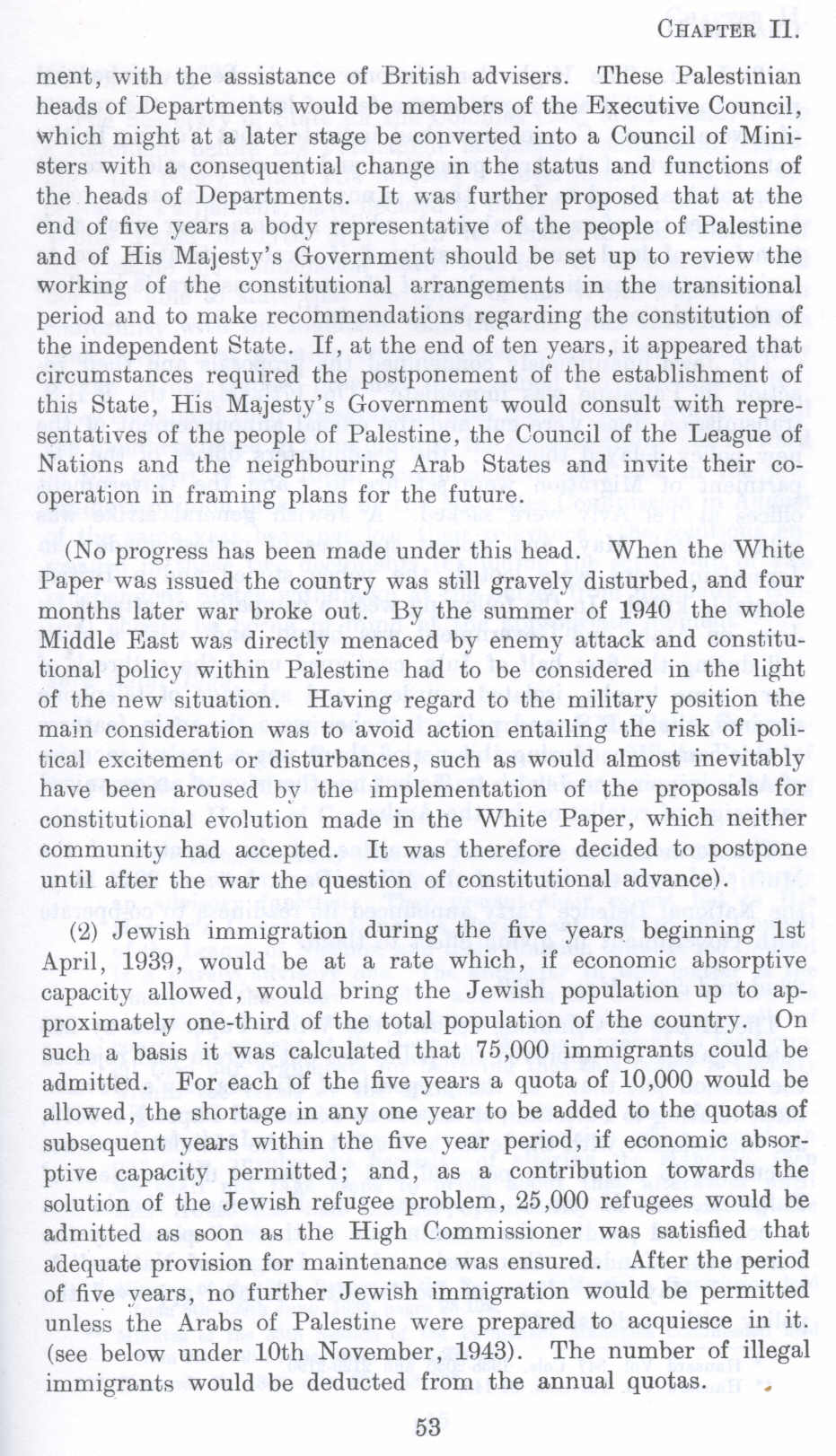| Prev | Next |  |
| Prev | Next |
| PalestineRemembered | About Us | Oral History | العربية | |
| Pictures | Zionist FAQs | Haavara | Maps | |
| Search |
| Camps |
| Districts |
| Acre |
| Baysan |
| Beersheba |
| Bethlehem |
| Gaza |
| Haifa |
| Hebron |
| Jaffa |
| Jericho |
| Jerusalem |
| Jinin |
| Nablus |
| Nazareth |
| Ramallah |
| al-Ramla |
| Safad |
| Tiberias |
| Tulkarm |
| Donate |
| Contact |
| Profile |
| Videos |
British Mandate: A Survey of Palestine: Volume I - Page 53 |
Disclaimer
The above documents, article, interviews, movies, podcasts, or stories reflects solely the research and opinions of its authors. PalestineRemembered.com makes its best effort to validate its contents.


Post Your Comment
*It should be NOTED that your email address won't be shared, and all communications between members will be routed via the website's mail server.
Government, with the assistance of British advisers. These Palestinian heads of Departments would be members of the Executive Council, which might at a later stage he converted into a Council of Ministers with a consequential change in the status and functions of the heads of Departments. It was further proposed that at the end of five years a body representative of the people of Palestine and of His Majesty's Government should be set up to review the working of the constitutional arrangements in the transitional period and to make recommendations regarding the constitution of the independent State. If, at the end of ten years, it appeared that circumstances required the postponement of the establishment of this State, His Majesty's Government would consult with representatives of the people of Palestine, the Council of the League of Nations and the neighbouring Arab States and invite their cooperation in framing plans for the future.
(No progress has been made under this head. When the White Paper was issued the country was still gravely disturbed, and four months later war broke out. By the summer of l\l40 the whole Middle East was directly menaced by enemy attack and constitutional policy within Palestine had to be considered in the light of the new situation. Having regard to the military position the main consideration was to avoid action entailing the risk of political excitement or disturbances, such as would almost inevitably have been aroused by the implementation of the proposals for constitutional evolution made in the White Paper, which neither community had accepted. It was therefore decided to postpone until after the war the question of constitutional advance).
(2) Jewish immigration during the five years beginning 1st April, 1939, would be at a rate which, if economic absorptive capacity allowed, would bring the Jewish population up to approximately one-third of the total population of the country. On such a basis it was calculated that 75,000 immigrants could be admitted. For each of the five years a quota of 10,000 would be allowed, the shortage in any one year to be added to the quotas of subsequent years within the five year period, if economic absorptive capacity permitted; and, as a contribution towards the solution of the Jewish refugee problem, 25 ,000 refugees would be admitted as soon as the High Commissioner was satisfied that adequate provision for maintenance was ensured. After the period of five years, no further Jewish immigration would be permitted unless the Arabs of Palestine were prepared to acquiesce in it. (see below under 10th November, 1943). The number of illegal immigrants would be deducted from the annual quotas.
Page 53